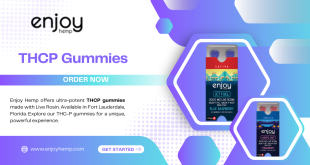In the competitive landscape of digital marketing, ensuring your website ranks high on search engine results pages (SERPs) is crucial. One of the most effective ways to improve your search engine visibility is by using URL indexer tools. These tools help search engines like Google, Bing, and Yahoo to discover and index your website’s content quickly and efficiently. In this article, we will explore some of the top URL indexer tools available today, how they work, and how they can significantly boost your website’s search engine visibility.
Understanding URL Indexing and Its Importance
URL indexing is the process by which search engines discover and store a website’s URLs in their database. Once a URL is indexed, it can appear in search engine results when users enter relevant search queries. Without proper indexing, even the most well-designed and content-rich websites may not get the visibility they deserve. This makes URL indexers vital for any SEO strategy.
Effective URL indexing ensures that search engines recognize the relevance and quality of your content. The more efficiently your URLs are indexed, the faster your content can appear in SERPs, leading to increased organic traffic and better rankings. This is particularly important for new websites or pages that have recently been updated, as they need to be indexed quickly to compete with established content.
The Role of URL Indexer Tools in SEO
URL indexer tools streamline the process of getting your URLs indexed by search engines. These tools work by submitting your website’s URLs to various search engines, ensuring they are crawled and indexed promptly. Additionally, some advanced tools use techniques like pinging, sitemap submissions, and backlink building to enhance the indexing process.
By using a reliable URL indexer, you can save time and effort while improving your website’s chances of ranking higher in search results. These tools are particularly useful for websites with large volumes of content or frequent updates, as they can automate the indexing process and ensure that new content is discovered quickly.
Top URL Indexer Tools for Enhanced Search Engine Visibility
Google Search Console is one of the most popular and effective tools for URL indexing. As a free service provided by Google, it allows webmasters to monitor and maintain their website’s presence in Google search results. With Google Search Console, you can submit individual URLs or entire sitemaps, which helps ensure that your website’s content is indexed efficiently.
One of the key benefits of using Google Search Console is its ability to provide insights into how Google views your website. It offers detailed reports on indexing status, crawl errors, and search performance. This information is invaluable for optimizing your site and improving its search engine visibility. Additionally, Google Search Console allows you to request indexing for new or updated content, helping to accelerate the process.
Indexification
Indexification is another powerful URL indexer tool that is widely used by SEO professionals. It is known for its fast and efficient indexing capabilities, which can significantly boost a website’s visibility in search engine results. Indexification supports multiple submission methods, including RSS feeds, sitemaps, and direct URL submissions, making it a versatile option for different types of websites.
One of the standout features of Indexification is its ability to index large volumes of URLs quickly. This makes it an ideal choice for websites with extensive content or those that frequently publish new pages. The tool also integrates with various third-party SEO software, allowing you to automate and streamline your indexing efforts. With Indexification, you can ensure that your URLs are indexed promptly, helping you to maintain a competitive edge in search engine rankings.
Factors to Consider When Choosing a URL Indexer Tool
When selecting a URL indexer tool, one of the most important factors to consider is its speed and efficiency. The faster a tool can get your URLs indexed, the sooner your content can appear in search results. This is particularly crucial for time-sensitive content, such as news articles or limited-time offers, where quick indexing can make a significant difference in traffic and engagement.
Efficiency also matters because it determines how effectively the tool can index a large number of URLs without overwhelming search engine crawlers. Some tools may offer faster indexing at the expense of thoroughness, while others may prioritize comprehensive indexing but take longer to achieve results. Finding a balance between speed and efficiency is key to maximizing your website’s search engine visibility.
Integration and Compatibility
Another important consideration is the tool’s integration and compatibility with other SEO tools and platforms. Many URL indexer tools offer integrations with popular SEO software, such as Ahrefs, SEMrush, and Moz, which can enhance your overall SEO strategy. These integrations allow you to streamline your workflow, making it easier to manage multiple aspects of your SEO efforts from a single platform.
Compatibility with different types of websites and content management systems (CMS) is also important. Whether you use WordPress, Shopify, or a custom-built website, the URL indexer tool should work seamlessly with your CMS to ensure efficient indexing. Additionally, some tools offer API access, allowing you to automate indexing tasks and customize the tool’s functionality to suit your specific needs.
Advanced Features of URL Indexer Tools
Some advanced URL indexer tools offer additional features, such as pinging and backlinking, which can further enhance the indexing process. Pinging involves notifying search engines that your website has been updated or that new content is available. This prompts search engine crawlers to revisit your site and index the new URLs, speeding up the process.
Backlinking, on the other hand, involves creating links to your website from other reputable sites. These backlinks signal to search engines that your content is valuable and worth indexing. Some URL indexer tools automatically generate backlinks to your URLs, which can improve their chances of being indexed quickly and ranking higher in search results. These advanced features can give your website an edge in the competitive world of SEO.
Reporting and Analytics
Comprehensive reporting and analytics are essential for measuring the effectiveness of your URL indexing efforts. Many URL indexer tools offer detailed reports on the status of your indexed URLs, including information on crawl errors, indexing delays, and overall performance. These insights can help you identify areas for improvement and refine your SEO strategy.
Analytics features can also provide data on how your indexed URLs are performing in search results, including click-through rates, rankings, and traffic levels. By analyzing this data, you can make informed decisions about which pages to prioritize for indexing and how to optimize your content for better visibility. Reporting and analytics are invaluable tools for any SEO professional looking to maximize the impact of their URL indexing efforts.
Common Challenges in URL Indexing and How to Overcome Them
One of the common challenges faced in URL indexing is crawl budget limitations. Crawl budget refers to the number of pages a search engine will crawl and index on your site within a given time frame. If your website has a large number of pages or frequently updated content, you may run into issues where not all URLs are indexed promptly due to crawl budget restrictions.
To overcome this challenge, it’s important to prioritize which URLs should be indexed first. Tools like Google Search Console allow you to submit sitemaps or individual URLs, helping you manage your crawl budget more effectively. Additionally, optimizing your website’s internal linking structure can make it easier for search engine crawlers to discover and index important pages, ensuring that your most valuable content is indexed quickly.
Duplicate Content Issues
Duplicate content is another challenge that can hinder effective URL indexing. When search engines encounter multiple URLs with identical or very similar content, they may struggle to determine which version to index and display in search results. This can lead to lower rankings or even exclusion from search results altogether.
To address this issue, it’s crucial to use canonical tags on your website. A canonical tag tells search engines which version of a URL is the “master” version that should be indexed. This helps prevent duplicate content issues and ensures that the correct URLs are prioritized for indexing. Additionally, using a reliable URL indexer tool can help manage and resolve duplicate content issues by ensuring that only the most relevant and important URLs are indexed.
Best Practices for Maximizing URL Indexing Success
Regularly updating your content is one of the best practices for maximizing URL indexing success. Fresh and updated content is more likely to be indexed quickly by search engines, as it signals that your website is active and relevant. This can lead to higher rankings and increased visibility in search results.
In addition to updating existing content, consider adding new pages or blog posts on a regular basis. This not only provides more opportunities for indexing but also helps keep your audience engaged with fresh and valuable information. Using a URL indexer tool can help ensure that your new and updated content is indexed promptly, allowing you to capitalize on these benefits.
Optimizing Page Load Speed
Optimizing page load speed is another important factor in successful URL indexing. Search engines prioritize websites that load quickly, as they provide a better user experience. Slow-loading pages may be penalized by search engines, resulting in lower rankings and reduced visibility.
To improve page load speed, consider optimizing images, using a content delivery network (CDN), and minimizing the use of heavy scripts and plugins. Additionally, ensure that your website is mobile-friendly, as mobile optimization is a key factor in search engine rankings. By improving your page load speed, you can increase the likelihood that your URLs will be indexed quickly and rank higher in search results.
Conclusion
URL indexer tools play a crucial role in improving your website’s search engine visibility. By streamlining the process of getting your URLs indexed, these tools can help ensure that your content is discovered and ranked quickly by search engines. Whether you’re using free options like Google Search Console or advanced tools like Indexification, the right URL indexer can make a significant difference in your SEO strategy.
 Daily Blogger News Stay updated with the latest trends and insights. Your reliable source for daily updates and information.
Daily Blogger News Stay updated with the latest trends and insights. Your reliable source for daily updates and information.







